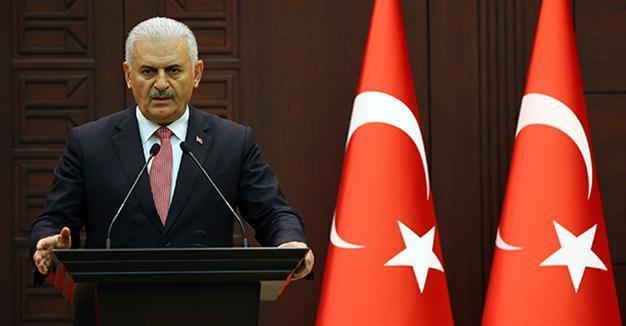6-year Turkish-Israeli crisis ends with deal
ANKARA / ROME

AA photo
Six years of strained relations between Turkey and Israel due to a fatal raid on a Gaza-bound flotilla by the latter appear to have to come to an end following the announcement of a deal by the prime ministers of both countries.A senior Turkish Foreign Ministry official told the Hürriyet Daily News that the deal would be signed “mutually and simultaneously at the headquarters of the foreign ministries of the two countries” on June 28.
Foreign Ministry Undersecretary Feridun Sinirlioğlu will sign on behalf of the Turkish government in Ankara, while Dore Gold, the director-general of Israel’s Foreign Ministry, will sign on behalf of his government in Jerusalem.
Turkey is among the majority of countries that do not recognize Jerusalem as Israel's capital, despite the completion of the transfer to that city of all Israeli government offices, except the Defense Ministry, after Israel’s 1981 declaration of Jerusalem as its “eternal” capital. Turkey operates an embassy in Tel Aviv and a consulate in Jerusalem.
Turkish PM Binali Yıldırım and his Israeli counterpart, Benjamin Netanyahu, said in separate but simultaneous press conferences that a deal for the normalization of relations between the two countries had been reached.
Yıldırım said the deal would be signed on June 28 and would be taken for confirmation to the cabinet in Israel and the parliament in Turkey, which would then be followed by the mutual assignment of ambassadors as soon as possible – a process that could be completed within “weeks.”
The Israeli navy killed 10 Turkish pro-Palestinian activists on the Mavi Marmara aid flotilla on May 10 as activists tried to breach an Israel’s Gaza blockade.
The prime minister also stated that Israel would pay $20 million in compensation to the relatives of the Mavi Marmara victims.
In exchange for the compensation, all claims against Israeli soldiers in Turkey will be dropped. As the deal will be an international agreement approved by the parliament, it will be positioned above domestic law and all charges against Israeli navy officers will need to be dropped.
For his part, Netanyahu stressed that his country’s maritime blockade of the Gaza Strip would remain following the agreement, though Turkey obtained aid concessions to be reached to Palestine.
“The first ship carrying over 10,000 tons of humanitarian aid from Turkey to Gaza, part of the deal between Turkey and Israel, will set out for Ashdod Port on Friday [July 1],” Yıldırım said.
Yıldırım said the embargo on Gaza would “largely be lifted under the leadership of Turkey.”
Yıldırım said a 200-bed Turkey-Palestine “friendship hospital” would also be put into service as soon as possible under the deal.
The construction of a new power station and a desalination plant for drinking water was also among the deals agreed upon in the deal.
The prime minister also said the Housing Development Administration of Turkey (TOKİ) was pursuing a housing development project in Gaza.
Speaking in Rome after meeting U.S. Secretary of State John Kerry, Netanyahu said the deal would help bring “stability” to the turbulent Middle East, while also highlighting the economic benefits for Israel, with his country in search of regional customers for gas exports and talk of a potential pipeline to Turkey.
Netanyahu said the deal opened the way for possible Israeli gas supplies to Europe via Turkey.
He described the agreement as having “immense implications for the Israeli economy.”
“I mean positive, immense implications,” he said.
Kerry also hailed the deal as a “positive step,” while U.N. Secretary-General Ban Ki-moon, on a visit to Israel and the Palestinian territories, called it a “hopeful signal for the stability of the region.”
Before the deal was announced, Turkish President Recep Tayyip Erdoğan spoke with Palestinian President Mahmoud Abbas by telephone on June 26 night and told him a deal had been reached with Israel to improve the humanitarian situation in Gaza, sources from the Turkish presidency said. The same sources said Abbas expressed satisfaction with the developments.
On June 24, Erdoğan met the leader of Palestinian group Hamas, Khaled Mashaal, in Istanbul, state-run Anadolu Agency reported, adding that the duo discussed how to resolve the disagreements among Palestinians as well as Turkish humanitarian assistance, the report said, citing an unnamed source from the Turkish Presidency.
With regards to Hamas’ situation in the deal, while there is no mention of Hamas in the deal itself, there is a clause stating that parties will not support terrorist organizations that conduct terrorist activities in the territories of the other party.
Attempts for a rapprochement between Israel and Turkey started in 2015 when delegations from the two countries discreetly met and kept on meeting throughout the first half of 2016 until a main deal was agreed upon. The delegations last met in Rome on June 26.
















